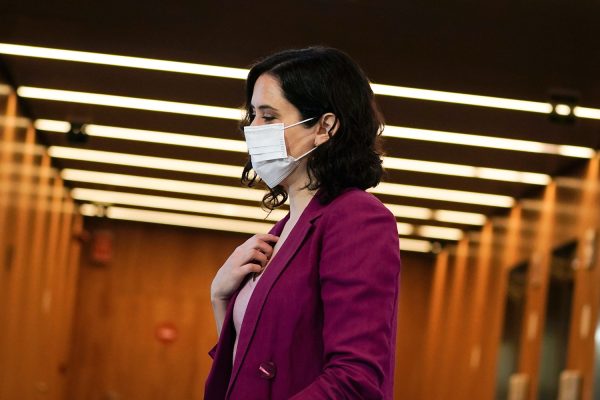
Spanish conservatives hope the third time will be the charm.
In 2018, spooked by the return of the far right, they chose the reactionary Pablo Casado as their leader over the center-right Soraya Sáenz de Santamaría. Casado pulled the People’s Party to the right, arguing for a clampdown on Catalan nationalism, lower immigration and tighter abortion laws. Voters didn’t approve. The party fell from 33 to 17 percent support in the election and lost over half its seats in Congress.
In the next election, seven months later, Casado doubled down. He refused to attack far-right leader Santiago Abascal and proposed to criminalize Catalan separatism. The conservatives did better, going up to 21 percent, but they still failed to defeat the Socialists. Abascal’s Vox also increased its vote share, to 15 percent.
The lesson from other European countries is that center-right parties can never outbid the far right, which is always willing to go a step further. Moving to the right in order to shrink the distance between mainstream and far right isn’t a winning strategy either. It makes it easier for conservative voters to switch.
In Madrid, Isabel Díaz Ayuso is nevertheless attempting the same strategy — and she might win.
“Freedom”
The incumbent president of the capital region, where the People’s Party has governed since 1995, calls her left-wing opponents “communists” and flirts with COVID-19 skepticism in the name of “freedom”. She has refused central government recommendations to close bars, concert halls and restaurants, claiming the ruling Socialists are treating Madrid “unfairly”. She denounces critical media reports as fake news.
The result: the worst coronavirus infection and death rates in Europe. 23,000 of the region’s 6.6 million residents have died, relatively more than in any other Spanish region or in any other European capital.
Polls still give Díaz Ayuso north of 40 percent support, which should be enough to form a right-wing government with Vox, which is polling at almost 10 percent.
Polarization
Díaz Ayuso’s Trumpian rhetoric has raised the political temperature in the city, and the left has reciprocated, warning of a “fascist” takeover.
Pablo Iglesias, the former deputy prime minister and far-left party leader, has received bullets in the mail. The red-yellow-purple tricolor flag of the Second Spanish Republic, which lost the Civil War, hangs from balconies in working-class neighborhoods. References to facha (fascists) and rojo (reds) are ubiquitous.
Nationally, the People’s Party has seen a mild upswing in popularity since the Madrid election campaign began, from 21-23 to 22-24 percent. Vox polls at 16 to 18 percent. The Socialists are still in first place with 26 to 30 percent support.
Díaz Ayuso may win another term in Madrid, but at the cost of Vox-ifying the People’s Party. Centrist voters elsewhere will see little reason to return to the once center-right party.
